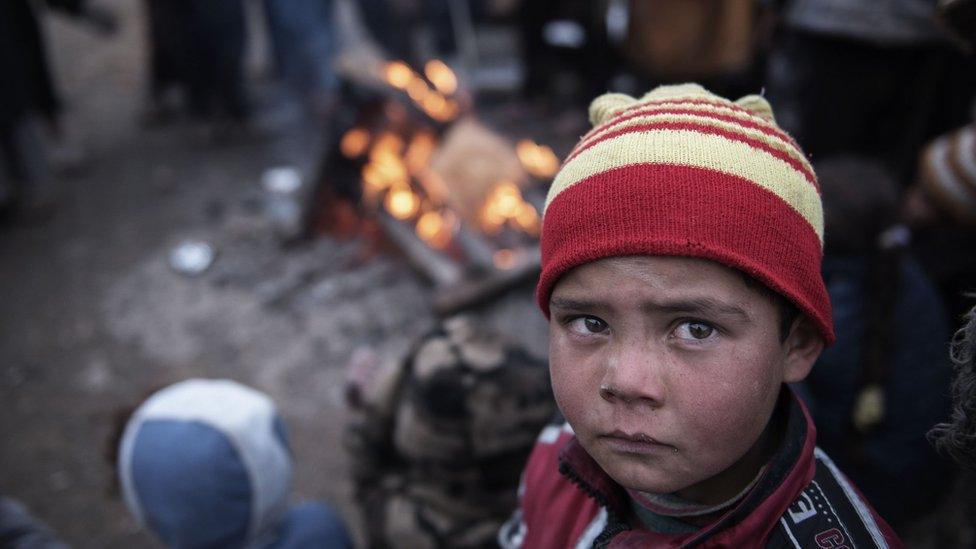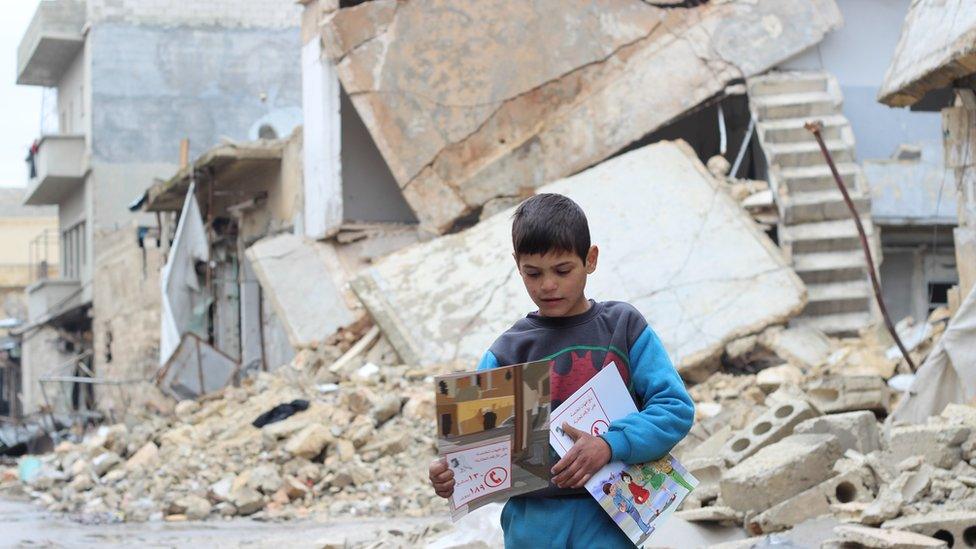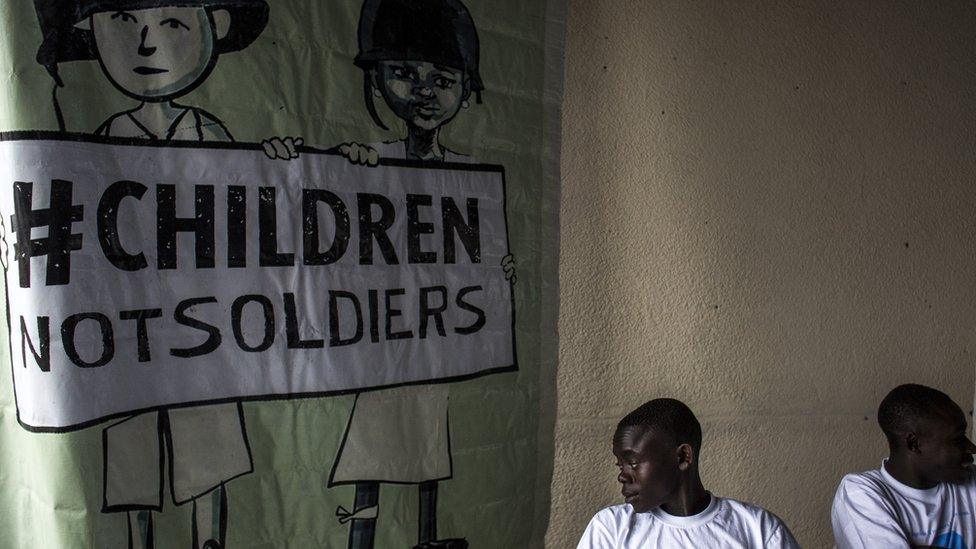Unicef says scale of attacks on children in conflicts is shocking
- Published

This child was one of many who fled fighting near Mosul, Iraq, in 2017
The UN children's fund says the scale of attacks on children in the world's conflict zones reached "shocking" levels in 2017.
In a new report, Unicef said there was widespread and blatant disregard for international laws designed to protect the most vulnerable.
Unicef director Manuel Fontaine said children were being targeted in their homes, schools and playgrounds.
He said such brutality "cannot be the new normal".
The report highlights several conflict zones, external where it said children had suffered in the past year. It included:
In the Central African Republic, children were killed, raped, abducted and recruited by armed groups in a dramatic increase in violence
Islamist militants Boko Haram forced at least 135 children in north-east Nigeria and Cameroon to act as suicide bombers, almost five times the number in 2016
Muslim Rohingya children in Myanmar suffered "shocking and widespread violence" as they were driven from their homes in Rakhine state
In South Sudan, more than 19,000 children were recruited into armed forces and armed groups
Fighting in Yemen has left at least 5,000 children dead or injured according to official figures, with the real number expected to be much higher
In eastern Ukraine, 220,000 children are living under the constant threat from landmines and other unexploded devices left over from the war
"Children are being targeted and exposed to attacks and brutal violence in their homes, schools and playgrounds," said Mr Fontaine, Unicef's director of emergency programmes.
"As these attacks continue year after year, we cannot become numb. Such brutality cannot be the new normal."

In Aleppo, Syria, Unicef gave children literature on reporting unexploded ordnance
The report says that in some places, children abducted by extremist groups suffer further abuse when they are released to security forces.
Millions more children suffer from malnutrition, disease and trauma when access to food, water, sanitation and health is prevented by fighting, it says.
"Unicef calls on all parties to conflict to abide by their obligations under international law to immediately end violations against children and the targeting of civilian infrastructure, including schools and hospitals," the reports adds.
"Unicef also calls on states with influence over parties to conflict to use that influence to protect children."

In DR Congo, Unicef highlighted a humanitarian crisis in the Kasai region where violence has driven 850,000 children from their homes